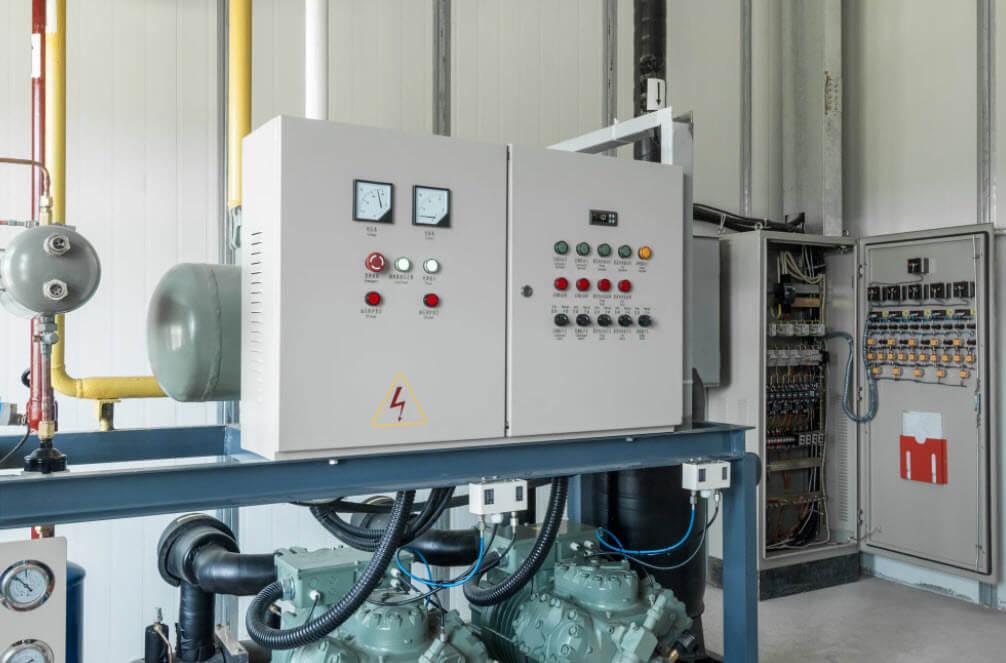Irrigation controls have become a game-changer in modern agriculture, landscaping, and water conservation practices. As climate conditions fluctuate and water resources become increasingly limited, the need for smarter, more efficient irrigation solutions is greater than ever. Whether you're managing a commercial farm, golf course, greenhouse, or residential landscape, the right irrigation control system can drastically improve water efficiency, crop health, and operational costs.
Irrigation controls refer to the technologies and systems used to regulate when, where, and how much water is distributed across a given area. These systems range from basic timer-based controllers to sophisticated, sensor-driven smart irrigation setups that automatically adapt to environmental conditions. With the advancement of automation and IoT (Internet of Things), irrigation controls are now more intelligent, accurate, and eco-friendly than traditional manual systems.
Why Irrigation Controls Are Essential
Water is a critical yet often overused resource in both agriculture and landscaping. Inefficient irrigation can lead to overwatering, soil erosion, nutrient leaching, and high utility costs. On the other hand, under-watering results in poor plant health, reduced yields, and long-term soil damage.
Here’s where irrigation control systems make a significant impact:
-
Conservation of Water: Smart systems use real-time data to minimize waste and apply water only when necessary.
-
Energy and Cost Savings: Efficient controls reduce pump usage and labor costs.
-
Improved Plant Health: Consistent, accurate watering schedules promote better crop and turf development.
-
Remote Monitoring and Automation: Many systems allow users to control and monitor irrigation from a smartphone or centralized software.
-
Scalability: From backyard gardens to industrial-scale farms, irrigation control solutions can be tailored to fit any size.
Types of Irrigation Control Systems
There are various types of irrigation controls depending on the specific application and environment. The most common include:
-
Manual Controllers – Simple timers that operate based on user-set schedules.
-
Weather-Based Smart Controllers – Adjust watering based on local weather data (temperature, humidity, rainfall).
-
Soil Moisture Sensors – Measure the water content in the soil and trigger irrigation when needed.
-
Centralized Control Systems – Ideal for large operations, allowing multiple zones and areas to be managed from one interface.
-
Drip Irrigation Controllers – Specialized systems for managing low-pressure drip lines and micro-irrigation setups.
The right system depends on factors like climate, soil type, crop or plant requirements, and budget.
Custom Irrigation Automation Solutions by X-Automation LLC
Designing and integrating a tailored irrigation control system requires deep technical knowledge and an understanding of both automation and environmental variables. This is where X-Automation LLC stands out as a trusted partner.
X-Automation LLC offers cutting-edge irrigation control and automation services tailored to the unique needs of agricultural operations, municipal landscapes, and commercial greenhouses. Their experienced team specializes in creating intelligent, programmable irrigation systems that optimize water usage, reduce costs, and ensure reliable operation over time.
From sensor integration and controller programming to remote monitoring and troubleshooting, X-Automation provides complete end-to-end solutions. Whether you're starting from scratch or upgrading an existing system, their customized approach ensures you get the most efficient and sustainable irrigation setup possible.
Industries That Benefit from Irrigation Control Systems
Irrigation controls are not just limited to farming. A wide variety of sectors rely on these systems to maintain optimal conditions while conserving resources:
-
Agriculture and Horticulture: For row crops, orchards, and nurseries, precision watering boosts yield and saves water.
-
Golf Courses and Parks: Large-scale turf management benefits from programmable zones and moisture sensors.
-
Greenhouses: Automated irrigation ensures consistent watering schedules tailored to specific plant species.
-
Municipal Landscaping: Cities and towns use irrigation control systems to maintain parks, medians, and public spaces efficiently.
-
Residential and Commercial Properties: Smart controllers make lawn care and garden maintenance easy and eco-friendly.
The Future of Irrigation Control
As sustainability becomes a growing priority, the future of irrigation controls is centered around smart technology. Here are a few key innovations on the horizon:
-
AI-Powered Systems: Using machine learning to predict weather patterns and adjust watering schedules accordingly.
-
Cloud-Based Platforms: Centralized dashboards for real-time monitoring and analytics.
-
Integration with Smart Home Systems: Seamless control via voice assistants or smartphone apps.
-
Solar-Powered Controllers: Reducing dependency on grid electricity for off-grid or remote locations.
These innovations are not only making irrigation more efficient but also more accessible and environmentally responsible.
Final Thoughts
Investing in intelligent irrigation controls is one of the smartest moves any landowner, farmer, or facility manager can make. Not only do these systems conserve water and energy, but they also enhance plant health, reduce labor, and cut operating costs in the long run.
If you're looking to implement or upgrade your irrigation system, visit xautomationllc.com to discover custom solutions that are designed to work smarter, not harder. With the right automation partner, you can stay ahead of environmental challenges while boosting the efficiency and sustainability of your operation.
